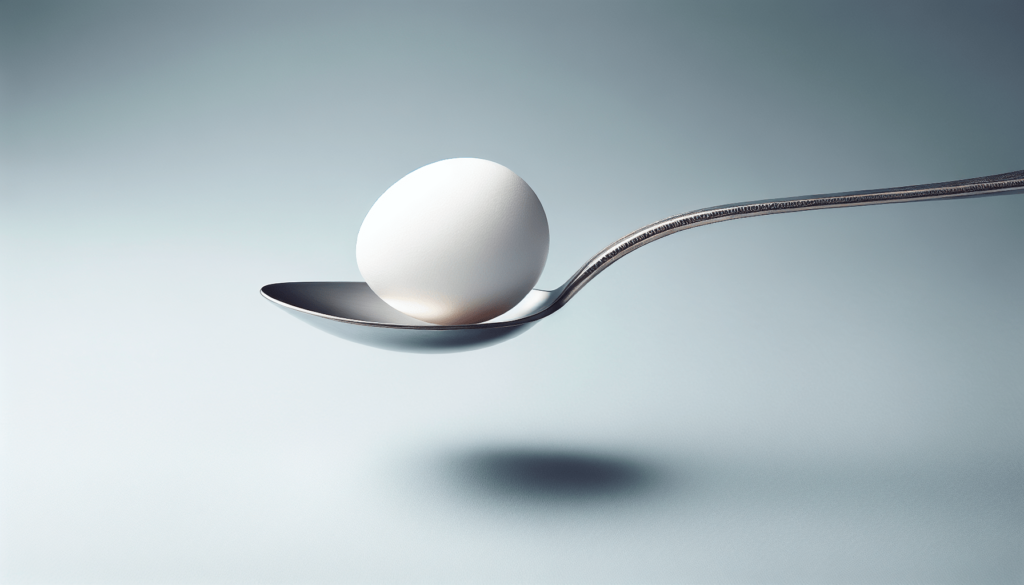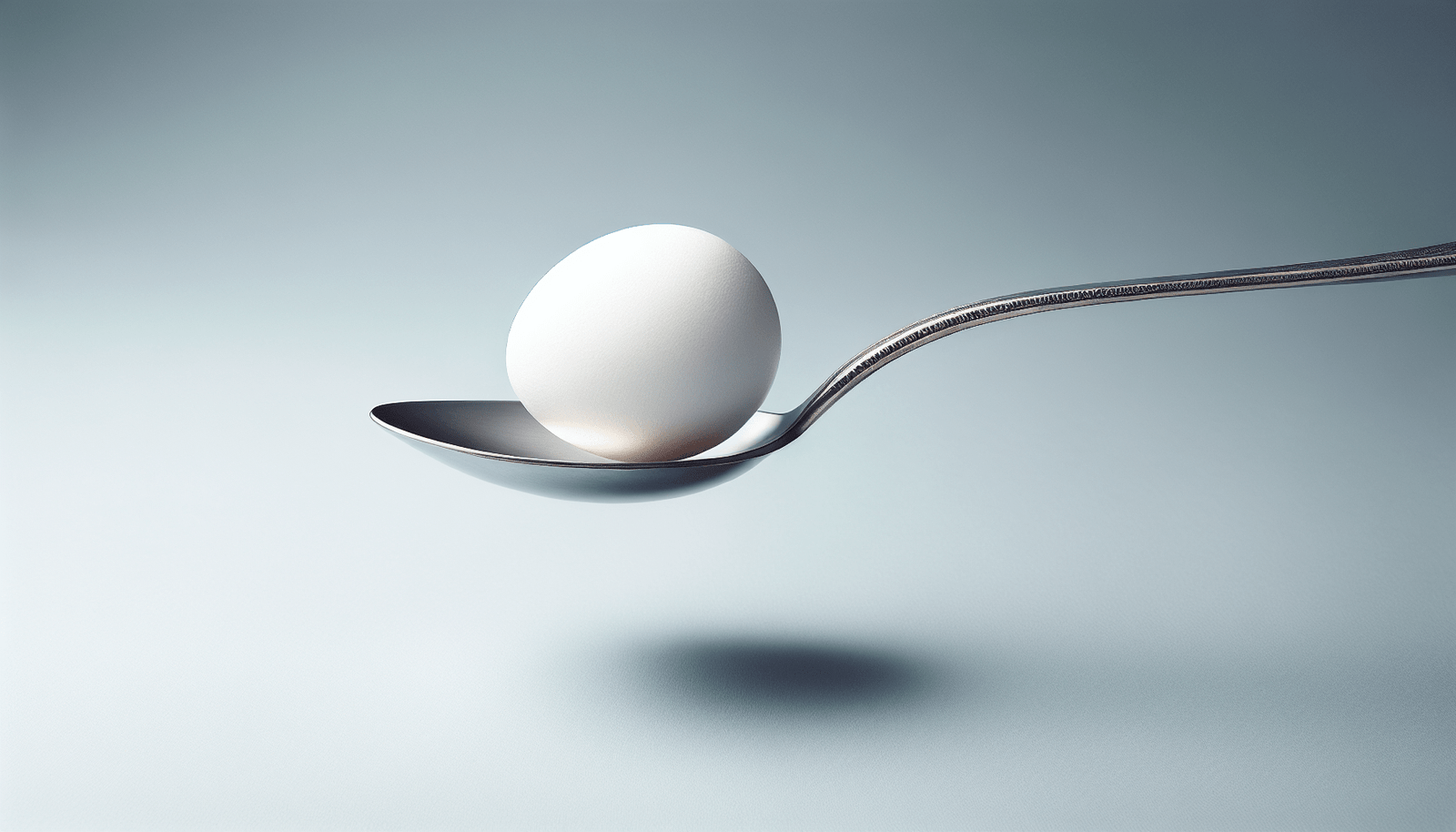Are you curious about the nutritional differences between egg whites and whole eggs? Look no further! In this article, we will provide a comprehensive breakdown of the nutritional content found in both egg whites and whole eggs. Get ready to explore the differences in protein, cholesterol, vitamins, and minerals, helping you make an informed decision on which type of egg best suits your dietary needs. So, whether you’re a fitness enthusiast, watching your cholesterol levels, or simply love the versatility of eggs in your daily meals, this article will provide you with all the information you need to fuel your curiosity and make the right choice.

Calories
Calories in Egg Whites
Egg whites are often considered a low-calorie option for those who are conscious of their calorie intake. A single large egg white contains just about 17 calories. This makes egg whites an excellent choice for individuals who are watching their weight or trying to maintain a calorie deficit.
Calories in Whole Eggs
On the other hand, whole eggs contain more calories compared to just the egg whites. A large whole egg contains approximately 71 calories, with the yolk contributing to the majority of the calorie content. While whole eggs are slightly higher in calories, they also provide additional nutrients that are not present in egg whites alone.
Protein
Protein in Egg Whites
Egg whites are praised for their high protein content. A single large egg white contains about 3.6 grams of protein. Protein is essential for building and repairing tissues, as well as supporting overall growth and development.
Protein in Whole Eggs
Whole eggs contain a higher amount of protein compared to egg whites alone. A large whole egg contains approximately 6 grams of protein. The protein content in eggs is considered to be of high quality, meaning it contains all the essential amino acids required by the body.
Protein Quality Comparison
When comparing the quality of protein in egg whites versus whole eggs, both sources of protein are highly bioavailable. This means that they are easily absorbed and utilized by the body. However, whole eggs contain a more complete profile of essential amino acids, making them a slightly more superior choice in terms of protein quality.
Fat and Cholesterol
Fat in Egg Whites
Egg whites are naturally fat-free, making them a great option for individuals who are following a low-fat diet or trying to control their fat intake. This makes egg whites a versatile ingredient that can be incorporated into various dishes without adding any additional fat.
Fat in Whole Eggs
In contrast to the fat-free egg whites, the yolk of a whole egg contains the majority of the fat content. A large whole egg contains approximately 4.8 grams of fat, with the majority being unsaturated fat. It’s important to note that not all fats are bad for your health, and consuming a moderate amount of healthy fats can be beneficial as part of a balanced diet.
Cholesterol in Egg Whites
Egg whites are cholesterol-free, which is a significant factor for individuals who are concerned about their cholesterol levels. Cholesterol is a type of fat that can contribute to the development of heart disease if consumed in excessive amounts. By opting for egg whites, you can still enjoy the nutritional benefits of eggs without the cholesterol content.
Cholesterol in Whole Eggs
The yolk of a whole egg contains approximately 186 milligrams of cholesterol, which is relatively high compared to the cholesterol content in other foods. However, it is important to note that research has shown that the cholesterol in dietary sources, such as eggs, may not have as significant an impact on blood cholesterol levels as previously thought. It is recommended to consume whole eggs in moderation as part of a balanced diet.
Vitamins and Minerals
Vitamin Content Comparison
When comparing the vitamin content of egg whites and whole eggs, whole eggs generally contain higher amounts of vitamins compared to egg whites alone. The yolk of an egg is where most of the vitamins are concentrated. Whole eggs are a good source of essential vitamins such as vitamin A, vitamin D, vitamin E, and vitamin K.
Mineral Content Comparison
Similarly, whole eggs also contain a higher amount of minerals compared to egg whites. The yolk is rich in essential minerals such as iron, phosphorus, and zinc. These minerals play vital roles in various bodily functions, including metabolism, bone health, and immune function.

Biotin
Biotin in Egg Whites
Egg whites are a good source of biotin, also known as vitamin B7. Biotin is essential for healthy skin, hair, and nails. A single large egg white contains approximately 0.03 milligrams of biotin.
Biotin in Whole Eggs
The yolk of a whole egg contains a higher concentration of biotin compared to egg whites alone. A large whole egg contains approximately 0.05 milligrams of biotin. Including the yolk in your diet can help ensure an adequate intake of biotin.
Vitamin D
Vitamin D in Egg Whites
Egg whites contain a negligible amount of vitamin D. Vitamin D is commonly known as the sunshine vitamin, as our bodies can synthesize it when exposed to sunlight. However, it is not present in significant amounts in egg whites.
Vitamin D in Whole Eggs
The yolk of a whole egg is where most of the vitamin D is found. A large whole egg contains approximately 0.87 micrograms of vitamin D. Vitamin D is crucial for maintaining healthy bones, supporting immune function, and overall well-being.
Vitamin B12
Vitamin B12 in Egg Whites
Egg whites do not contain vitamin B12. Vitamin B12 is primarily found in animal-based foods and is essential for the production of red blood cells and proper neurological function.
Vitamin B12 in Whole Eggs
The yolk of a whole egg is a rich source of vitamin B12. A large whole egg contains approximately 0.56 micrograms of vitamin B12. Including whole eggs in your diet can help ensure an adequate intake of this important vitamin.
Iron
Iron in Egg Whites
Egg whites contain only trace amounts of iron. Iron is an essential mineral that is required for the production of hemoglobin, a protein in red blood cells that carries oxygen throughout the body. For individuals with iron deficiencies, consuming solely egg whites may not be sufficient to meet their iron needs.
Iron in Whole Eggs
On the other hand, the yolk of a whole egg is a good source of iron. A large whole egg contains approximately 0.88 milligrams of iron. Including the yolk in your diet can help increase your iron intake and support overall health.
Selenium
Selenium in Egg Whites
Egg whites contain only trace amounts of selenium. Selenium is an antioxidant mineral that plays a vital role in protecting cells from damage, supporting thyroid function, and boosting the immune system.
Selenium in Whole Eggs
The yolk of a whole egg is where most of the selenium is concentrated. A large whole egg contains approximately 15.4 micrograms of selenium. Consuming whole eggs can help ensure an adequate intake of this important mineral.
Conclusion
When comparing egg whites to whole eggs, it is evident that both options have their own nutritional benefits. Egg whites are low in calories, fat-free, and cholesterol-free, making them an excellent choice for individuals watching their weight or concerned about cholesterol levels. They are also a good source of protein and biotin. On the other hand, whole eggs provide a more complete nutritional profile, including higher amounts of vitamins, minerals, healthy fats, and a wider range of essential amino acids. It is important to consider your individual dietary needs and goals when deciding whether to include solely egg whites or whole eggs in your diet. If you are generally healthy and not advised otherwise by a healthcare professional, consuming whole eggs in moderation can be a nutritious addition to a balanced diet.

